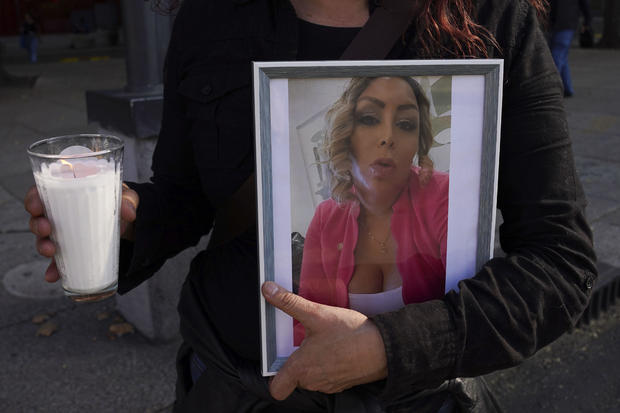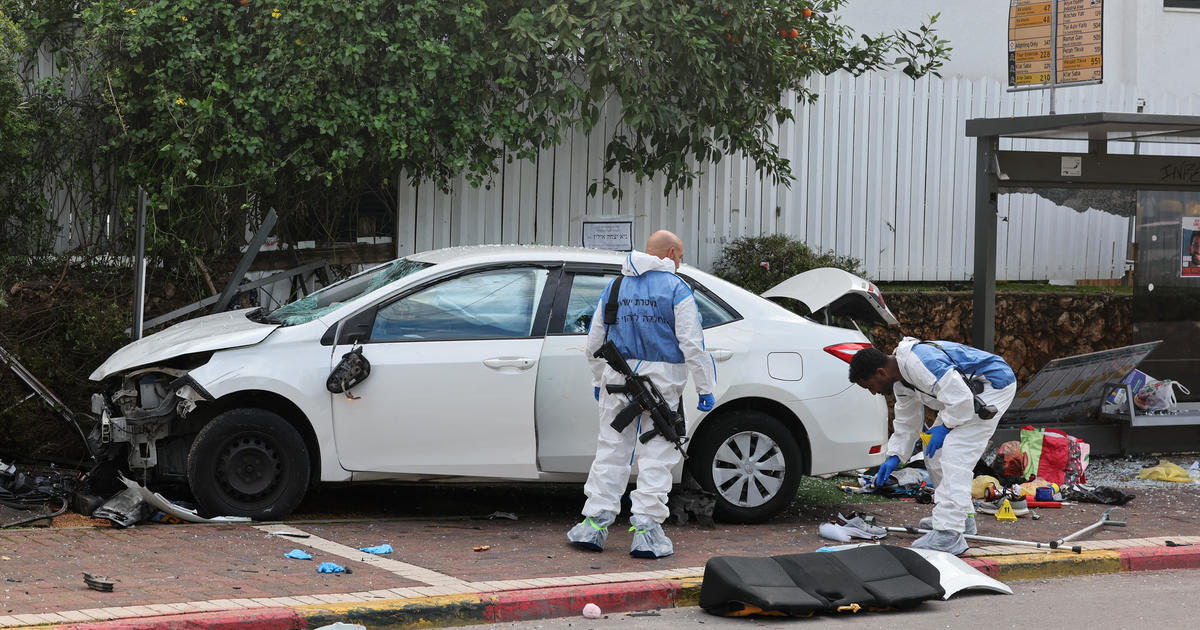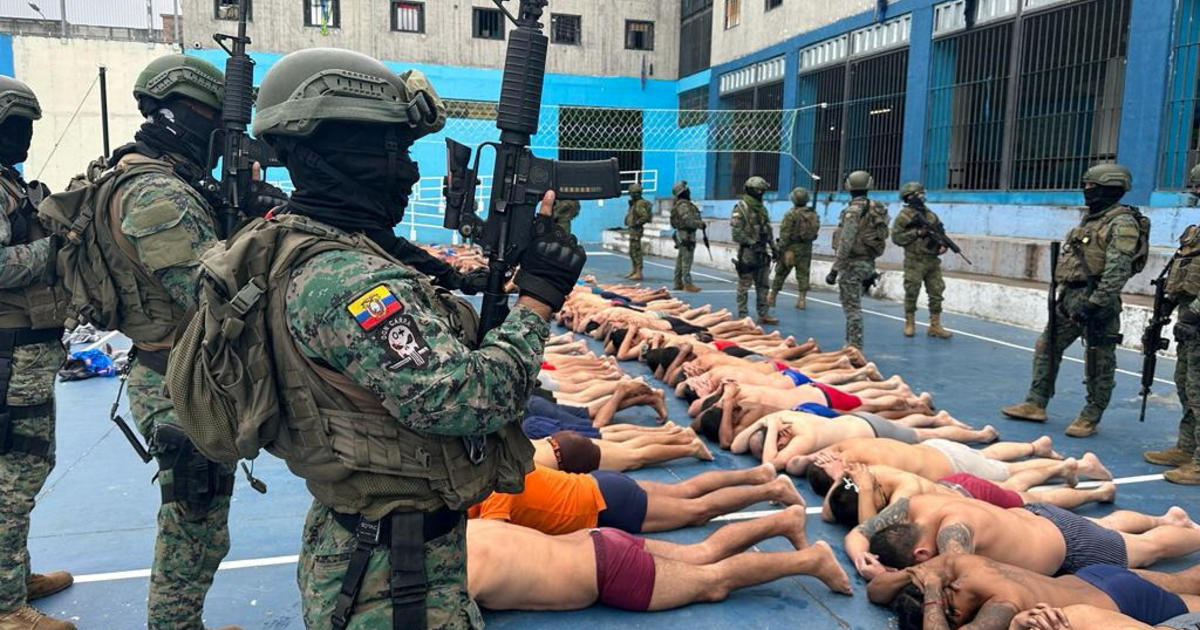Politician among at least 3 transgender people killed in Mexico already this month as wave of slayings spur protests
Authorities in Mexico said at least three transgender people were killed in the first two weeks of 2024, and rights groups were investigating two additional such cases. The slayings marked a violent start to the year in a country where the LGBTQ+ community is often targeted.
The latest death came on Sunday, when transgender activist and politician Samantha Gómez Fonseca was shot multiple times and slain inside a car in the south of Mexico City, according to local prosecutors.
The killings spurred outrage among members of the LGBTQ+ community who protested in Mexico City's main throughway on Monday.
Around 100 people marched chanting: "Samantha listen, we're fighting for you" and carrying signs reading "your hate speech kills." Another group of protesters earlier in the day spray painted the words "trans lives matter" on the walls of Mexico's National Palace.
Fonseca, the activist and politician slain on Sunday, originally intended to march alongside other activists to call for greater acceptance of transgender people in society. After her death, the march quickly turned into a call for justice and for more comprehensive laws around hate crimes.
Paulina Carrazco, a 41-year-old trans woman among the marchers, said it felt like "the violence was knocking on our front door."
"We are scared, but with that fear we're going to keep fighting," Carrazco said. "We're going to do everything in our power so the next generations won't have to live in fear."
Gay and transgender populations are regularly attacked and killed in Mexico, a nation marked by its "macho" and highly religious population. The brutality of some of the attacks is meant to send a message to Queer people that they are not welcome in society.
Over the past six years, the rights group Letra S has documented at least 513 targeted killings of LGBTQ+ people in Mexico. Just last year, the violent death of one of the most recognizable LGBTQ+ figured in Mexico, Ociel Baena, sparked a similar wave of outrage and protests.
Some like 55-year-old Xomalia Ramírez said the violence was a partly consequence of comments made by Mexican President Andrés Manuel López Obrador last week when he described a transgender congresswoman as "man dressed as a woman."
While López Obrador later apologized, marchers like Ramírez, a transgender woman from the southern state of Oaxaca, said it was too little too late.
Ramírez said women like her struggle to find work and when they do, their gender identity is regularly ignored. Working as a Spanish teacher, she said her bosses force her to wear men's clothes to work.
"If I want to work, I have to disguise myself as a man," Ramírez said. "If I don't, I won't eat."
"These comments by the president have created transphobia and resulted in hate crimes against the trans community," Ramírez added.
Last week, a transgender activist, Miriam Nohemí Ríos, was shot to death while working in her business in the central Mexican state of Michoacán.
On Saturday, authorities in the central state of Jalisco said they found a transgender person's body laying in a ravine with gunshot wounds.
Two other cases, were not immediately confirmed by law enforcement, but were registered by rights groups who said they often struggle to get details from officials in their efforts to document hate crimes.
One transgender woman known as "Ivonne" was slain alongside her partner in the southern state of Veracruz, according to the National Observatory of Hate Crimes Against LGBTI people.
Meanwhile, Letra S. documented the killing of transgender stylist Gaby Ortíz, whose body was found in the Hidalgo state. Local media, citing local authorities, said her body was found on the side of the road next to "a threatening message" written on a piece of cardboard.
Law enforcement said they would investigate the violent deaths but the activists said they doubted anything would come of the cases. Due to high levels of corruption and overall disfunction in Mexico's government, around 99% of crimes in Mexico go unsolved.
"It's very likely that cases like this will end in impunity," said Jair Martínez, an analyst for Letra S.
Transgender violence in the U.S. and around the world
A report released in November by the Human Rights Campaign highlighted what the LGBTQ+ organization called an "epidemic of violence" against the trans and gender non-conforming community in the U.S. — one that especially impacts transgender women and transgender people of color, who the report said "are at elevated risk of fatal violence."
At least 32 transgender and gender non-conforming people were killed in the U.S. since the beginning of 2022, HRC reported in November.
Earlier this year, the HRC declared a "state of emergency" for LGBTQ+ Americans for the first time in its 40-year history. The organization pointed to record numbers of anti-LGBTQ+ legislation being introduced across the country, with over 220 specifically targeting trans people, including attempts to limit access to sports teams, restrooms, locker rooms, gender-affirming care and inclusive school curricula.
Between Oct. 2022 and Sept. 2023, over 300 trans and gender-diverse people around the world were reported murdered, according to data compiled by nonprofit Transgender Europe. According to Statista, Brazil reported the highest number of cases globally, accounting for 31 percent of the world's total. Mexico and the United States recorded the next highest numbers, respectively.
C Mandler contributed to this report.
for more features.




